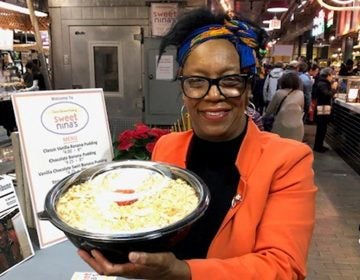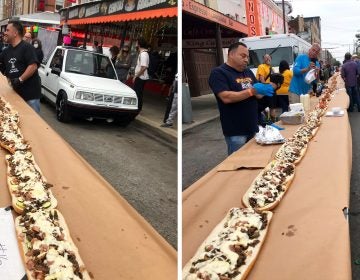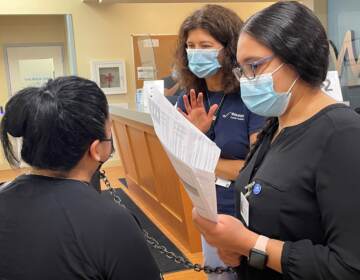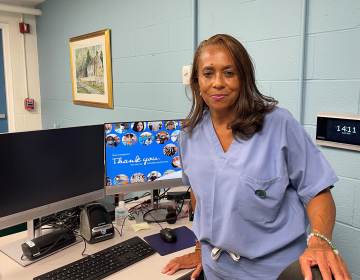Oasis of fresh fruit, veggies sprouts in northeast Wilmington ‘food desert’
The gritty strip of Northeast Boulevard is targeted for comprehensive redevelopment. The Produce Stop emerged ‘organically’ when two sisters went into business.
Listen 3:38
Owner Adiyuh Davis inspects the pepper selection. (Cris Barrish/WHYY)
Tyrone White had grown weary of having to drive a few miles across town from his northeast Wilmington home to buy fresh fruit and vegetables.
So this spring, when he saw The Produce Spot sign in front of a formerly empty space next to a sprawling Dollar Tree store, he popped in for a look.
Inside he found a sparkling new Black-owned business with a Smart TV playing soothing music and a cornucopia of colorful items: orange, red, and yellow peppers, purple and green grapes, pineapples, papayas, and a variety of apples and pears. Wooden boxes held collard greens, okra, asparagus, broccoli, corn, and more.
The store had everything the 60-year-old White might be seeking in his quest for a healthy diet. And for once, it was within walking distance in a neighborhood long considered a food desert.
“We stop in here at least once a week,’’ White told an WHYY reporter at the store. “I mean, fresh produce. What better can it be?”
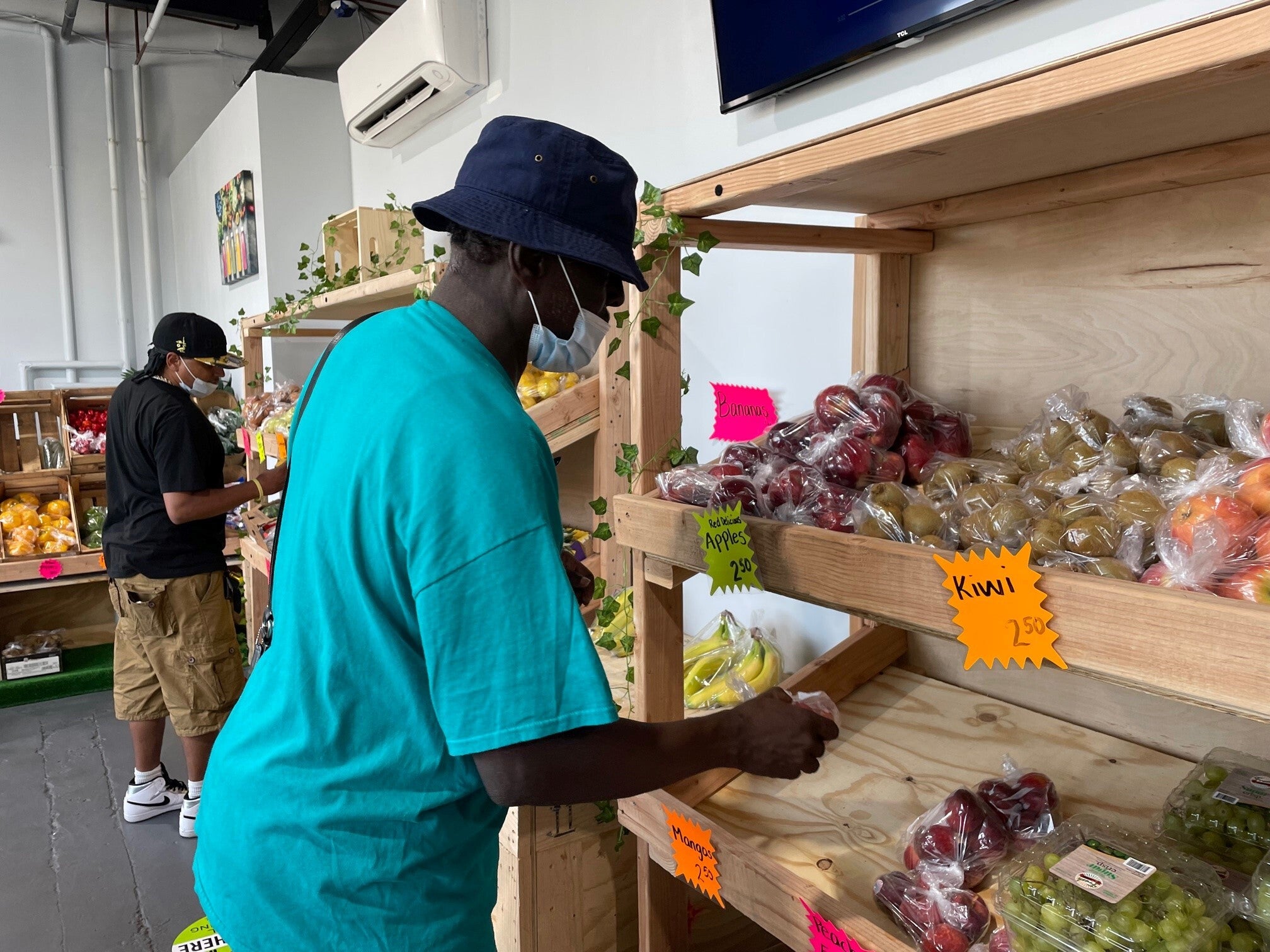
White was accompanied by John Bracy.
“We saw this was Black-owned, Black woman-owned. Queens doing something here in the neighborhood and very clean,’’ Bracy gushed.
Bracy raved about the variety of fruit, which also includes navel oranges, Granny Smith apples, and Comice pears.
“I haven’t seen dragon fruit in the stores,’’ he said after seeing the vibrant yellow delicacy with leathery skin and scaly spikes that comes from a cactus.
City and neighborhood leaders are also welcoming The Produce Spot to this 1.5-mile stretch of Northeast Boulevard, which bisects the Eastlake and Riverside public housing communities.
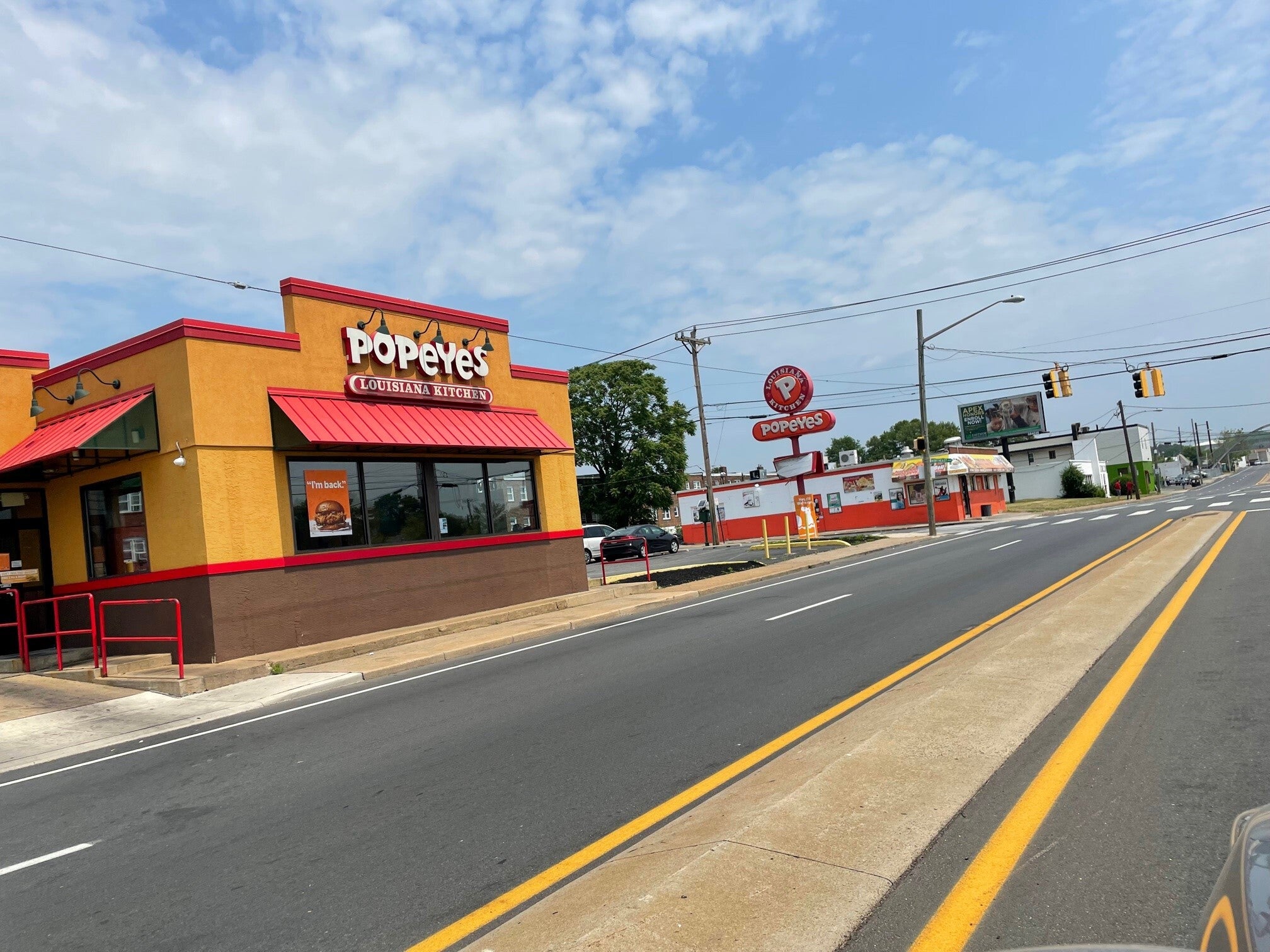
The gritty strip — dominated by auto body shops, used tire stores, and some small churches — includes a couple of neighborhood convenience stores that have a scant selection of produce among the canned goods, chips, sodas, cold cuts and fried foods. There’s also a few delis and fast food spots, including a Popeyes.
Mayor Mike Purzycki calls the produce-only market “a vital addition” that’s “already making a positive impact” on a predominantly Black community that’s been targeted for comprehensive redevelopment by what’s known as the Reach Riverside coalition. Many residents don’t have cars and rely on public transportation to get basic necessities like groceries or medicine.
“Low-income communities often have limited access to fresh, healthy food, which has an enormous effect on many aspects of residents’ lives — from health care to quality of life to obesity rates,’’ the mayor said. “Researchers have even found that being able to buy fresh food can help reduce crime and make residents more invested in their communities.”
Bringing ‘healthy living and love into the community’
The business is the brainchild of sisters Adiyuh and Thameenah Davis, who are from North Philadelphia, where their father supported the family with the proceeds from his produce truck. The women both worked in administrative jobs for years at the Nemours Children’s Hospital near Wilmington before deciding to venture into the food industry.
The Davises financed their operation privately, but Purzycki’s office is trying to help them secure additional public funding to help them prosper.
The sisters welcomed a reporter who dropped in unexpectedly last week.
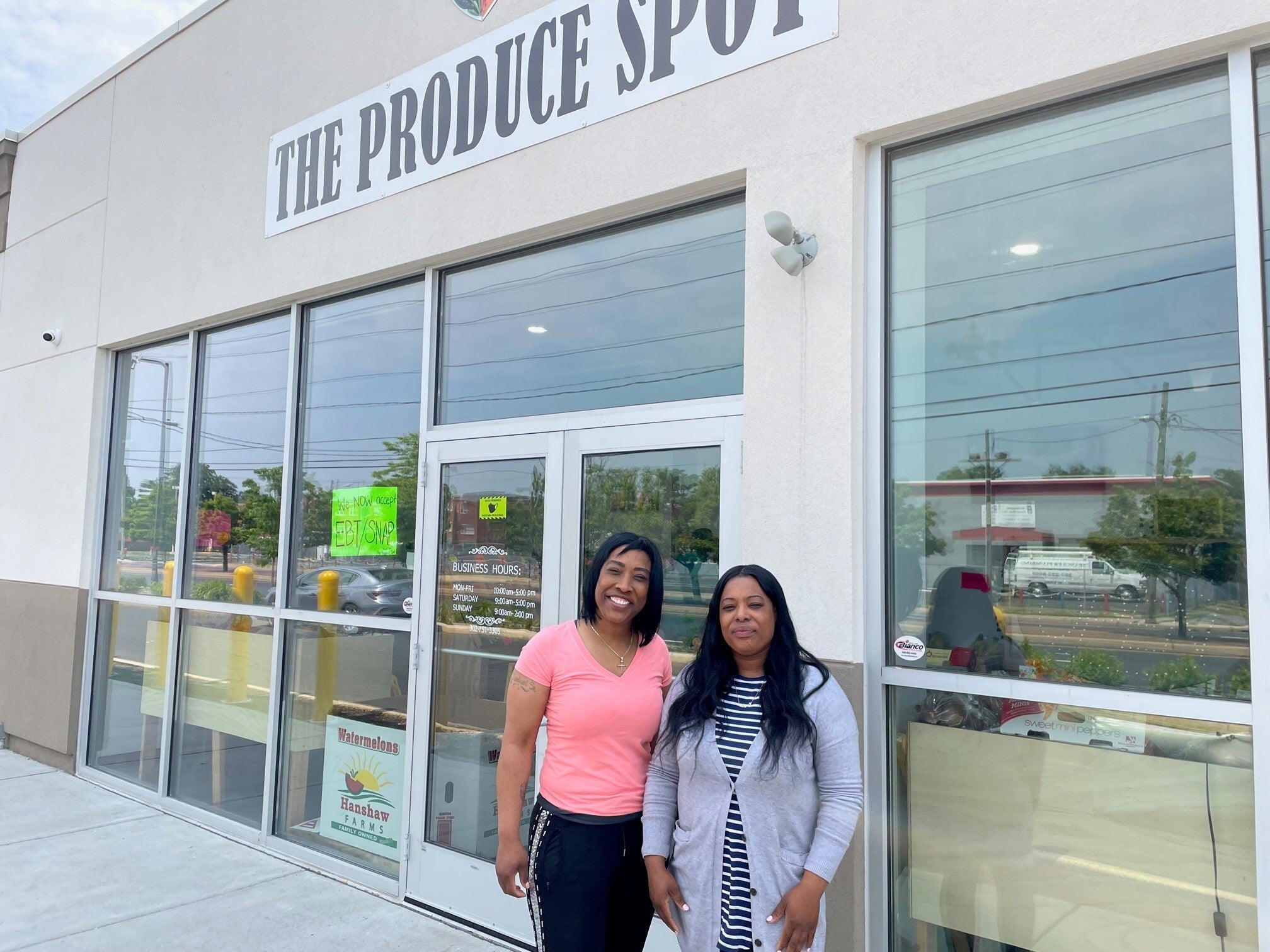
“We’re trying to not only bring healthy eating to Wilmington, Delaware, we’re trying to bring love into the community as well, one family at a time, just to help people see something different out here,’’ Adiyuh Davis said. “They’re considering this as a food desert. We didn’t know that when we opened. However, we just want to bring love and fresh eating to the community.”
She said a “lot of customers come for our corn,’’ and took the opportunity to unzip a piece to show off the succulent-looking kernels. “We like to open it up so [customers] can see what they are getting.”
The store accepts SNAP benefits as payment.
‘About getting ahead of health and being preventive’
Are the Davis sisters confident that a store that sells just fresh produce will appeal to residents who aren’t used to having such a selection in their backyard?
“In the beginning we were unsure,’’ Adiyuh Davis acknowledged. “But we just feel that it’s right. We have to do a little bit more marketing. I’m going out to the neighborhoods, passing out fliers, but they know we’re here.”
To that end, The Produce Spot is already contributing to two community refrigerators recently installed in the neighborhood — one at the Kingswood Community Center another at The Warehouse, a new social and educational center for teens.
“That’s where the love comes in,’’ Thameenah Davis said. “[We let] them know with love that it is important that they do this, and that they choose these things for not only for themselves, but for their children.”
One fan is Logan Herring, who runs Kingswood and is leading the Reach Riverside initiative, supported by the Purzycki administration. The units built in the early 1950s are in the process of being torn down and replaced with a mix of about 600 market rate and subsidized homes. Beyond better housing, officials also want to attract healthier food choices as well as health care facilities and enhanced educational opportunities. One anchor already in place is the Eastside Charter School.
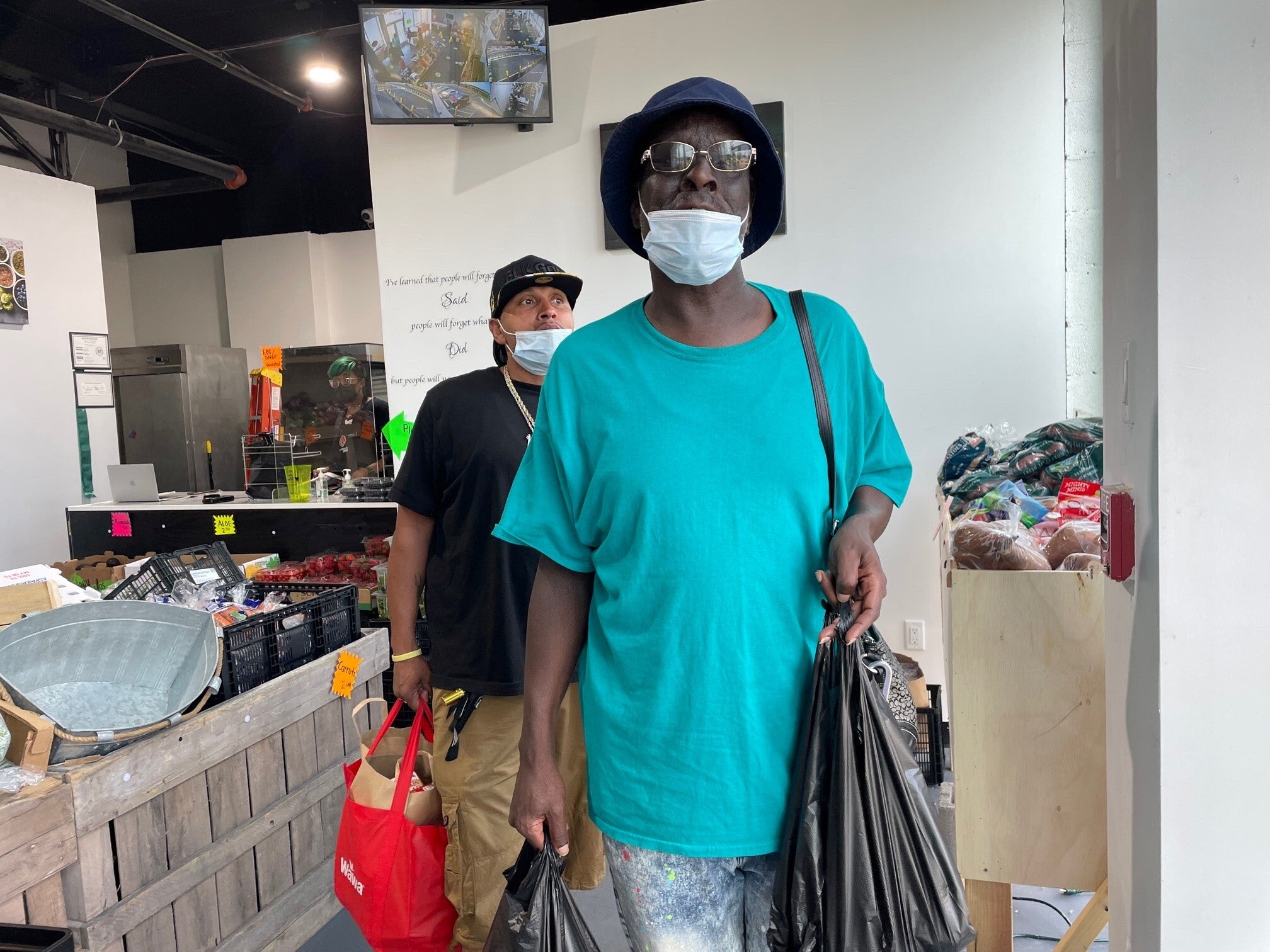
Kingswood has a community garden and is hoping to partner with the Davis sisters, said Herring, who didn’t even know The Produce Spot was coming. He chuckled when a reporter suggested it just happened “organically” outside of the coordinated revitalization project.
“I think it’s vital for the neighborhood. Particularly in communities like Riverside, communities of color, it’s about getting ahead of health and being preventive.” Herring told WHYY News. “And if we can prevent health issues by way of access to healthy food, which is something that has been few and far between in the Riverside neighborhood, having The Produce Spot, which is owned by two Black sisters, I mean, you couldn’t have it a better way.”
Jessica Wescott, who runs the community garden and stocks the community fridges through her nonprofit Planting to Feed, is happy to make a fresh connection with the Davises providing nutritious food to Riverside-area residents.
“I am super excited for the sisters,’’ Wescott said. “We are aligned on the passion we have for the community and ensuring access to quality foods.”
Bracy, one of their new loyal customers, seconded that notion.
“It’s right here in the community,’’ he said. “We love it.”

Get daily updates from WHYY News!
WHYY is your source for fact-based, in-depth journalism and information. As a nonprofit organization, we rely on financial support from readers like you. Please give today.



